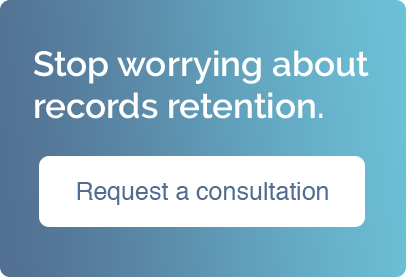How Long Do You Need to Keep Records After a Business Closes?

Approximately 80 percent of all new businesses fail within the first 18 months. Whether your business falls into that category or you are closing your business after it has provided employment to you and others for many years, you need to keep some business records after your business closes. There are records that you need to keep if you are being bought out by another corporation. Here are some guidelines that might help you know what to keep.
Records retention can help if someone tries to come after your company’s assets. The Internal Revenue Service can still perform an audit of a business after it closes. Furthermore, employees may try to make workers’ compensation claims against your business. If someone tries to say that you committed fraud, then you will need your business records to prove otherwise.
The best way to understand the recordkeeping requirements for business records is to reach out to Information Requirements Clearinghouse, as they can provide guidelines on how long you need to keep your records. Following their advice on records retention can help protect you against the Internal Revenue Service, court cases, and other government actions.
They can also help you understand your responsibilities under the law now that your business is no longer in operation. Some records, including retirement pension financial records, certified public audit reports, and trust documents, have a much longer holding period than other documents like tax records. The good news is that you can get rid of many documents to help you cut down on storage space.
You need to take special care to store and destroy employee records correctly. These records often include pre-employment background checks, work history and reviews, wage and hourly statements, health and safety inspections, and the reasons for separation from employment. A records retention schedule, backed by legal research, can give you specifics about what is safe to throw out and what you need to keep. Generally, if you are being bought out by another entity, you will want to pass along all these records.
While it is often best if paper records are kept in a fireproof and waterproof safe or safety deposit box, there are special considerations that must be used for records that are kept electronically. Even if you take the time to wipe a computer completely clean, there are usually ways that these records can be restored, and you may be held liable if you did not follow the correct procedures.

